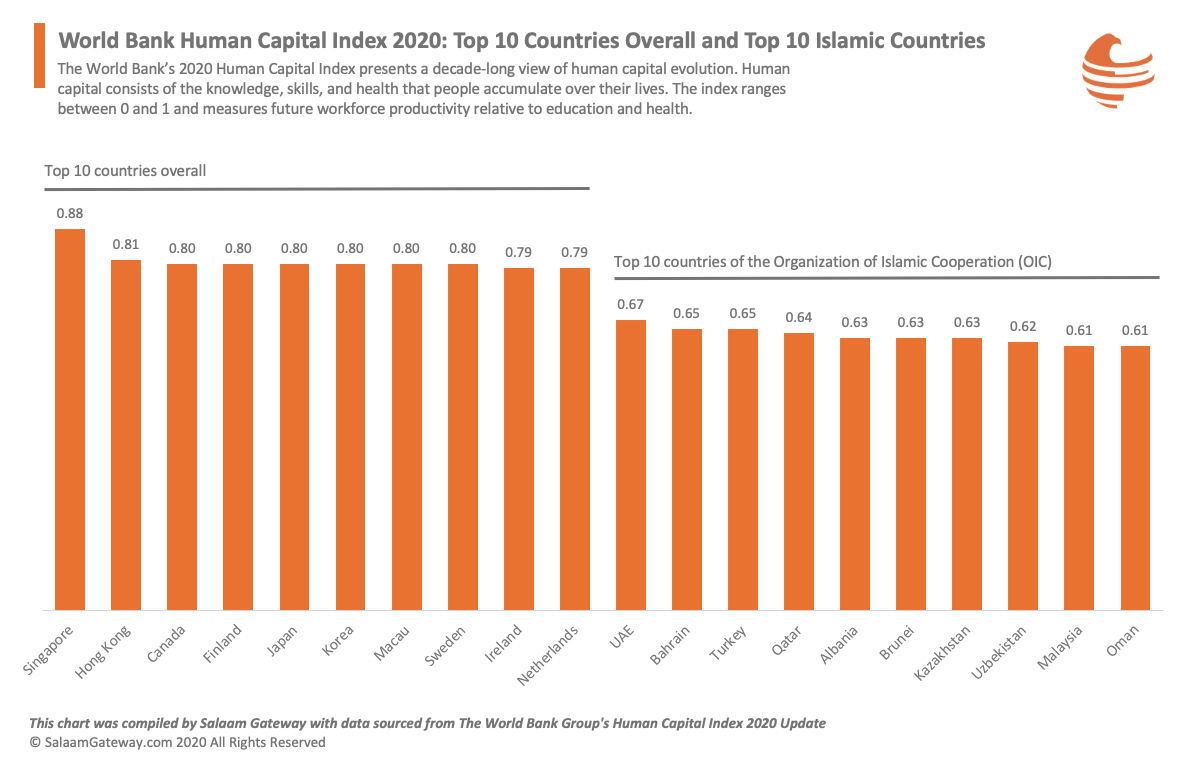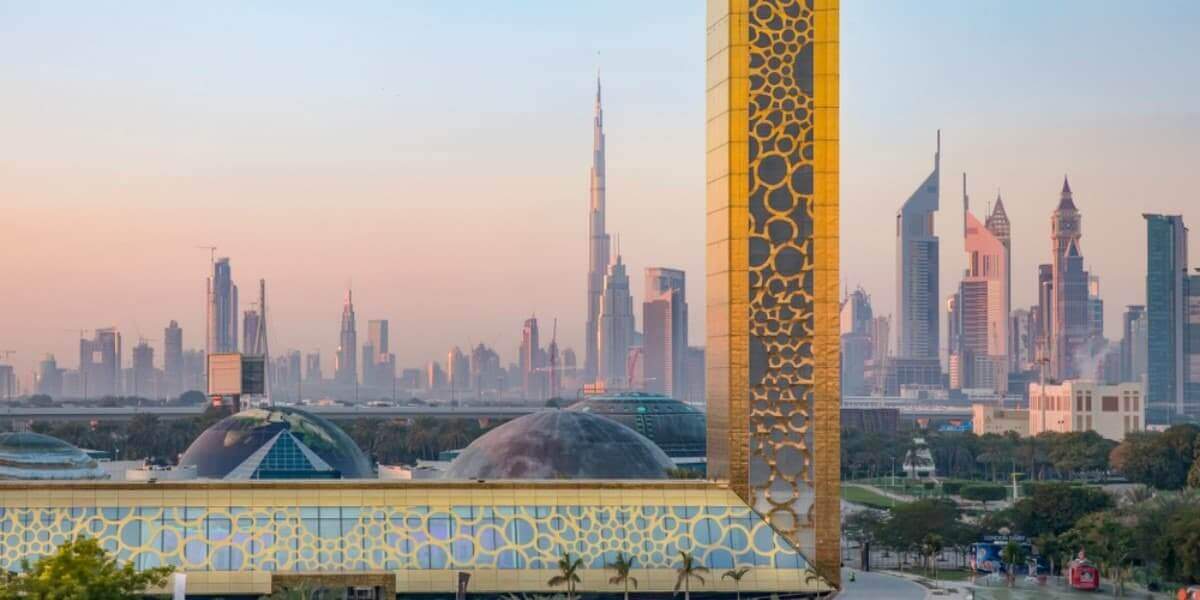UAE, Bahrain, Turkey top Islamic countries on World Bank Human Capital Index

UAE, Bahrain and Turkey are the top Islamic countries on the World Bank Group’s Human Capital Index 2020 but there is still a wide gap between them and the world’s frontrunners.
The World Bank’s 2020 Human Capital Index presents a decade-long view of human capital evolution. Released on Wednesday (September 16), the report depicts data for 174 countries up to March 2020. The leading countries overall are Singapore, Hong Kong, and six countries tied on the same third-placed score: Canada, Finland, Japan, Korea, Macau, and Sweden.
Human capital consists of the knowledge, skills, and health that people accumulate over their lives. The index ranges between 0 and 1 and measures future workforce productivity relative to education and health.
The World Bank’s analysis shows that pre-pandemic most countries had made steady progress in building human capital but there’s a lot of room for improvement for Islamic countries.
“The pandemic puts at risk the decade's progress in building human capital, including the improvements in health, survival rates, school enrollment, and reduced stunting,” the Group’s President David Malpass said in a press release.
“Protecting and investing in people is vital as countries work to lay the foundation for sustainable, inclusive recoveries and future growth,” Malpass added.
Most of the populous nations of the Organization of Islamic Cooperation (OIC) rank below the mean score of 0.50, including Egypt (0.49), Bangladesh (0.46), and Pakistan (0.41). The bottom of the barrel is Nigeria, with a score of just 0.36.
Kuwait (0.56), Jordan (0.55), and Tunisia (0.52) even managed to push down their points by 0.01 compared to their 2010 achievements.
On the positive side — UAE not only scores high with 0.67 but also records a significant 0.05 increase compared to 2010. Only Albania outperforms this surge by adding 0.09, reaching 0.63 in 2020.
The World Bank recommends countries expand health service coverage and quality among their marginalized communities, boost learning outcomes and school enrollments and support vulnerable families with social protection measures.
The multilateral institution thinks evidence-driven policy measures in health, education, and social protection can recover lost ground.
EDUCATION COUNTS
According to the report, close to 1.6 billion children worldwide were out of school at the height of the COVID-19 pandemic and could lose out, on average, half a year of schooling.
Dropouts, due to the loss of family income, and a reduction in quality of learning because of inefficient remote teaching methods, add to the COVID-19 education dilemma.
Among Islamic countries, education is a sector in which Bangladesh has made good progress. Over the past decade, the country improved its school attendance rate and successfully increased the Expected Years of Schooling (EYS) from 8.2 years to 10.2 years in 2020.
The World Bank credits the government’s efforts in fertility reduction, triggering incentives to invest more in children’s schooling. The Bangladesh Female Stipend Program stimulates girls’ participation in secondary school, enabling the country to achieve gender parity in education, the report says.
In June, the World Bank approved $1.05 billion for three projects helping Bangladesh create quality jobs, accelerate economic recovery, and build resilience to future crises.
Mercy Tembon, World Bank Country Director for Bangladesh and Bhutan, said the COVID-19 pandemic has deeply jeopardized many of Bangladesh’s remarkable achievements in poverty reduction and shared prosperity, including livelihoods of its population.
The Bank supports the development of school safety and hygiene protocols while providing relevant basic sanitization supplies.
Bangladesh scored 0.46 in the 2020 report.
HEALTH ADVANCES
Further to education, the account highlights Morocco’s health policy commitment, leading to the immunization of 91% of the country’s children.
The Maghreb nation combats child and maternal mortality, while controlling fertility rates through family planning programs.
These efforts helped improve Morocco’s human capital outcomes, rewarded by an increased Human Capital Index score of 0.50 in 2020.
Morocco’s economic growth has spiraled downward for the last two years, with GDP growth dropping to 2.3% in 2019, according to the World Bank.
To help Morocco cope with the effects of the COVID-19 pandemic, the Bank restructured a $275 million Disaster Risk Management Development Policy Loan, said the organisation’s website.
(Reporting by Petra Loho; Editing by Emmy Abdul Alim emmy.abdulalim@salaamgateway.com)
© SalaamGateway.com 2020 All Rights Reserved
